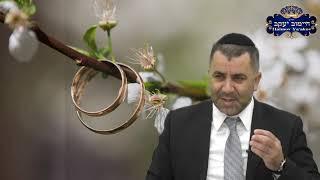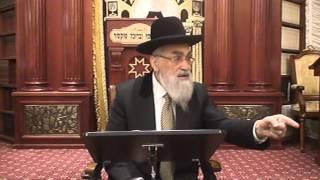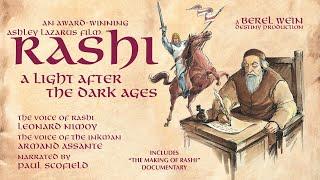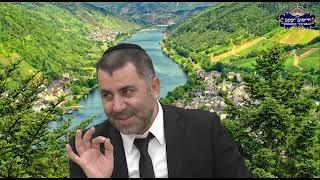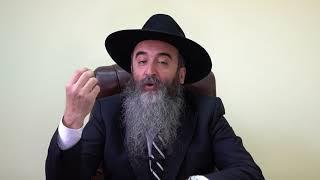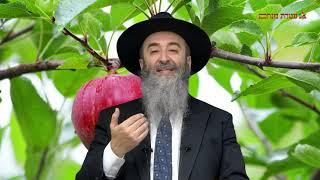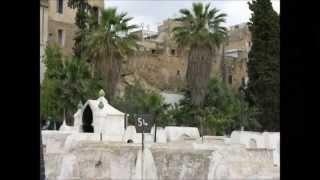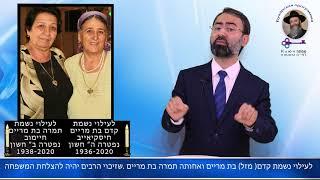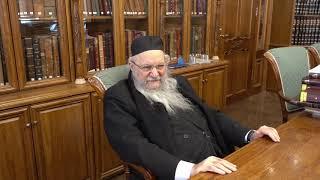Problems playing the video? Click Here to reload
Watch Videos: Random | New | Popular
All Essays | Report Video
|
Share Video
- Buy Us a Coffee -
Rabbi YY Jacobson
This text-based class, in Likkutei Sichos vol. 15 Parshas Lecha Lecha, explores the four stages of spiritual development from Adam to Noach, to Avraham, to Moshe.
The Rebbe Rashab once said: “The portion of Bereishit, is a happy portion. G-d is creating universes and creatures and is satisfied that ‘it is good.’ Its ending, however is not so pleasant. Still in all, it is generally a happy Torah portion and in all Jewish communities there is joy and delight - we have begun the Torah anew. With the next week's reading, Noah, comes the Flood. It is a depressing week, but with a happy ending - Abraham our father is born. But the truly joyous week is Lech-Lecha. Every day of the week we live with Abraham Our Father.
An obvious question comes to mind: indeed, why are these weekly readings so divided? Why mar the “happy portion” of Bereishit with its depressing ending, especially since these last few verses actually begin the story of the Flood, the central theme of the next week's reading? A similar thing happens at the end of Noah: after a detailed description of Noah's life and the events of the Flood and the Tower of Babel, the portion concludes with a brief account of the birth and early life of Abraham, whose life is to fill, with rich detail, the next three Torah portions. Surely, a far more natural division would have been for Noah to begin with the final eight verses of Bereishit, and for Lech Lecha to open with Abraham's birth, a scant seven verses before the end of Noah!
The class takes us on an incredible journey to discvoer four levels of one's spiritual and emotional develpment, expressed in how we view ourselves, others, and the world around us. We discover a tale of four loves.
This text-based class, in Likkutei Sichos vol. 15 Parshas Lecha Lecha, explores the four stages of spiritual development from Adam to Noach, to Avraham, to Moshe.
The Rebbe Rashab once said: “The portion of Bereishit, is a happy portion. G-d is creating universes and creatures and is satisfied that ‘it is good.’ Its ending, however is not so pleasant. Still in all, it is generally a happy Torah portion and in all Jewish communities there is joy and delight - we have begun the Torah anew. With the next week's reading, Noah, comes the Flood. It is a depressing week, but with a happy ending - Abraham our father is born. But the truly joyous week is Lech-Lecha. Every day of the week we live with Abraham Our Father.
An obvious question comes to mind: indeed, why are these weekly readings so divided? Why mar the “happy portion” of Bereishit with its depressing ending, especially since these last few verses actually begin the story of the Flood, the central theme of the next week's reading? A similar thing happens at the end of Noah: after a detailed description of Noah's life and the events of the Flood and the Tower of Babel, the portion concludes with a brief account of the birth and early life of Abraham, whose life is to fill, with rich detail, the next three Torah portions. Surely, a far more natural division would have been for Noah to begin with the final eight verses of Bereishit, and for Lech Lecha to open with Abraham's birth, a scant seven verses before the end of Noah!
The class takes us on an incredible journey to discvoer four levels of one's spiritual and emotional develpment, expressed in how we view ourselves, others, and the world around us. We discover a tale of four loves.
- Category
- Bereshit-Lech Lecha
- Tags
- lech lecha, four loves
Commenting disabled.







